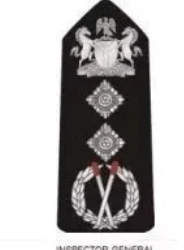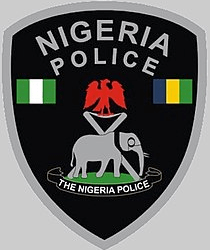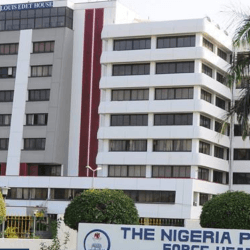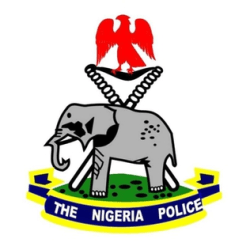The Nigeria Police Force (NPF) is the principal law enforcement agency in Nigeria. Its structure, duties, and authority are dictated by a formal command hierarchy, in line with constitutional provisions and the Police Act of 1990. Understanding the rank system is essential to grasp how the police force operates, how authority is distributed, and how orders flow from top officials down to the grassroots officers. This article outlines the ranks in the NPF, detailing their roles and responsibilities.
The Nigeria Police Force is responsible for enforcing law and order, protecting life and property, and ensuring public safety across Nigeria’s 36 states and the Federal Capital Territory (FCT). As a para-military organization, it operates under a command structure that dictates how authority and responsibilities are distributed among its personnel. This structure helps maintain discipline, ensures smooth operations, and facilitates decision-making across various levels of the police.
Police ranks in Nigeria, from top to bottom:
- Inspector-General of Police (IGP)
- Deputy Inspector-General of Police (DIG)
- Assistant Inspector-General of Police (AIG)
- Commissioner of Police (CP)
- Deputy Commissioner of Police (DCP)
- Assistant Commissioner of Police (ACP)
- Chief Superintendent of Police (CSP)
- Superintendent of Police (SP)
- Deputy Superintendent of Police (DSP)
- Assistant Superintendent of Police (ASP)
- Inspector of Police (IP)
- Sergent Major (SM)
- Sergent
- Corporal
- Constable
Police ranks in Nigeria, from bottom to top:
- Constable
- Corporal
- Sergent
- Sergent Major (SM)
- Inspector of Police (IP)
- Assistant Superintendent of Police (ASP)
- Deputy Superintendent of Police (DSP)
- Superintendent of Police (SP)
- Chief Superintendent of Police (CSP)
- Assistant Commissioner of Police (ACP)
- Deputy Commissioner of Police (DCP)
- Commissioner of Police (CP)
- Assistant Inspector-General of Police (AIG)
- Deputy Inspector-General of Police (DIG)
- Inspector-General of Police (IGP)
Symbols of police ranks in Nigeria:
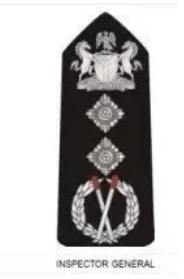
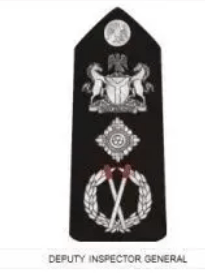
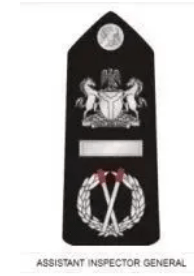
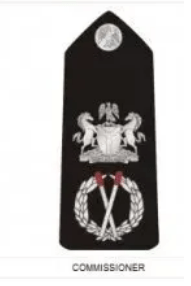
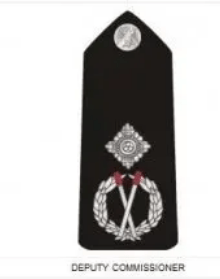
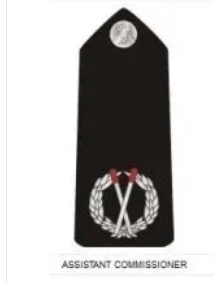
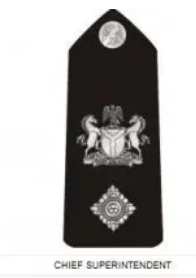
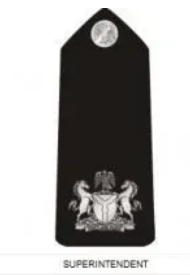



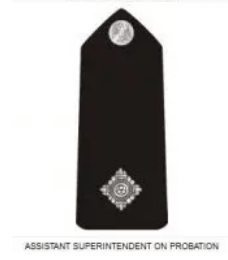
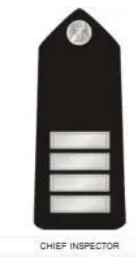
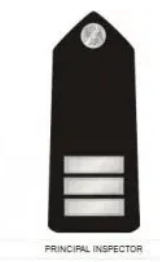

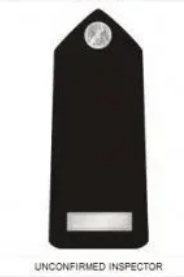
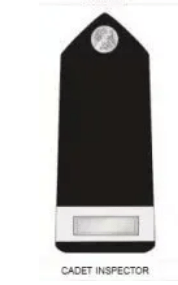
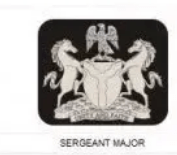
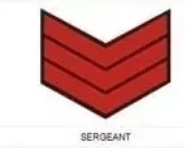
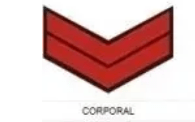
Constitutional and Legal Framework
The command structure of the Nigeria Police is enshrined in the 1999 Constitution of Nigeria and the Police Act of 1990. Section 215(2) of the Constitution establishes that the police force is commanded by the Inspector-General of Police (IGP). Meanwhile, the Police Act provides additional details about the hierarchy of the police ranks, laying the legal foundation for the different levels of command and how they interact.
Police Command Structure
The Nigeria Police operates with a well-defined command hierarchy. Orders flow from the highest-ranking official, the Inspector-General of Police, down through a series of subordinate officers. This chain of command is crucial for effective law enforcement, as it ensures that directives are implemented efficiently and that there is accountability at every level. Disobedience or failure to follow orders can result in punitive measures, as stipulated by police regulations.
Role of the Inspector-General of Police (IGP)
At the apex of the command structure is the Inspector-General of Police (IGP), who is the highest-ranking officer and the chief executive of the Nigeria Police Force. The IGP is responsible for overseeing the entire police force, issuing directives, and implementing national policing policies. Appointed by the President, the IGP plays a pivotal role in shaping the strategic direction of the police force. The IGP’s duties also include advising the government on policing matters, ensuring the safety of citizens, and maintaining public order.
The Deputy Inspector-General of Police (DIG)
The Deputy Inspector-General of Police (DIG) ranks immediately below the IGP and acts as the second in command. The Police Act provides for multiple DIGs, each responsible for overseeing a particular department or aspect of police operations. The DIGs assist the IGP in implementing policies and can assume the IGP’s duties in their absence. This rank is essential in ensuring continuity of leadership within the force.
The Assistant Inspector-General of Police (AIG)
The Assistant Inspector-General of Police (AIG) rank is responsible for overseeing large regions or specific operations within the police force. In the event that both the IGP and DIG are absent, the AIG can act in their place. There are several AIGs across the country, each tasked with managing different zones or commands within the NPF.
Role of the Commissioner of Police (CP)
A Commissioner of Police (CP) is in charge of police operations within an individual state or territory. The CP leads the contingents of the Nigeria Police in their state and is responsible for executing the orders and directives from the IGP and higher-ranking officers. The CP also ensures that law and order are maintained in the region under their jurisdiction, coordinating efforts with local government officials and community leaders.
The Deputy Commissioner of Police (DCP)
The Deputy Commissioner of Police (DCP) assists the CP in managing police operations at the state level. The DCP often takes charge of specialized units or specific operations within the state, ensuring that the CP’s directives are followed and that day-to-day law enforcement activities run smoothly.
Assistant Commissioner of Police (ACP)
The Assistant Commissioner of Police (ACP) is a senior officer who supports the CP and DCP in executing policing strategies. The ACP may oversee certain divisions or lead special task forces within the state. Their role is crucial in ensuring that policies and operational plans are implemented effectively.
Chief Superintendent of Police (CSP)
The Chief Superintendent of Police (CSP) typically commands police districts or manages specialized units. CSPs oversee the operations of lower-ranking officers, ensuring that they adhere to the guidelines set by higher command. They are critical in maintaining order within their assigned areas and ensuring operational effectiveness.
Superintendent of Police (SP)
The Superintendent of Police (SP) plays a supervisory role over police divisions or units. SPs are tasked with enforcing laws, conducting investigations, and overseeing field operations. They are responsible for coordinating the activities of subordinate officers and ensuring that public safety measures are implemented.
Deputy Superintendent of Police (DSP)
The Deputy Superintendent of Police (DSP) holds a mid-level management position within the NPF. DSPs oversee investigations, manage police stations, and handle administrative duties. They are instrumental in supporting the day-to-day operations of the police divisions under their command.
Assistant Superintendent of Police (ASP)
The Assistant Superintendent of Police (ASP) is one of the junior commissioned officers within the NPF. ASPs often lead smaller police units or investigation teams and are responsible for ensuring that policing efforts align with the strategic objectives of the force. ASPs supervise lower-ranking officers and report directly to senior officers.
Non-Commissioned Officers (NCOs)
Non-Commissioned Officers (NCOs) make up the backbone of the Nigeria Police Force. They include ranks such as Sergeant Major, Sergeant, Corporal, and Constable. While these officers do not hold the same administrative powers as commissioned officers, they are essential in executing field operations, maintaining public safety, and enforcing the law at the grassroots level.
Rank of Inspector of Police
The Inspector of Police is a critical link between commissioned officers and the lower ranks. Inspectors manage sergeants and constables, ensuring that field operations run smoothly. They are involved in both administrative and operational duties, making them pivotal to police divisions.
Sergeant Major, Sergeant, and Corporal
The Sergeant Major, Sergeant, and Corporal are the senior-most ranks among the non-commissioned officers. They command constables, manage day-to-day police operations on the ground, and play a hands-on role in maintaining law and order. They are often the first responders in policing incidents.
Police Constable
At the base of the police hierarchy is the Police Constable. Constables are the lowest-ranking officers and are responsible for basic law enforcement duties, such as patrolling neighborhoods, responding to emergencies, and carrying out arrests. Despite their junior position, they play a vital role in ensuring public safety.
Appointment and Promotion Process
Promotions within the Nigeria Police Force are determined by experience, performance, and adherence to regulations. Officers must meet certain criteria and pass through merit-based assessments to ascend to higher ranks. The process is designed to ensure that only qualified individuals occupy positions of authority.
Punitive Measures and Discipline
Police officers are expected to obey orders from their superiors, and disobedience can result in serious consequences. According to Regulation 273 of the Police Regulation, failure to comply with orders can lead to punitive sanctions, including suspension or dismissal from the force. This regulation ensures discipline and order within the NPF.
The Importance of Rank Structure
The hierarchical rank structure of the Nigeria Police Force ensures that law enforcement is carried out efficiently and that there is accountability at every level. Each rank within the NPF plays a crucial role in maintaining public safety, upholding the rule of law, and protecting the rights of citizens. The clear chain of command ensures that directives are followed, and that officers can perform their duties effectively in service to the country.
